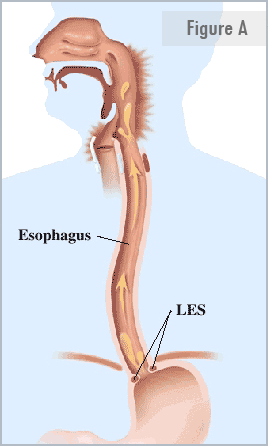Characterized as the “most dangerous form of contamination [in evidentiary breath testing]” by the world’s foremost alcohol physiologist A.W. Jones, Gastro Esophageal Reflux Disorder (GERD) and Evidentiary Breath Testing (EBT0 that produce readable breath alcohol content (BrAC) estimates do not mix. It can provide for disaster.
The BrAC machines that the police use in the station are not perfect. They can be likened to a screwdriver in that a screwdriver is useful as a tool for its designed and intended purpose — that is to screw in screws into a receiving object. A screwdriver does not make for a very good or useful hammer. It is not designed to be a hammer. Can one use a screwdriver to get a nail into a wall? Sure, but it would be best not to trust its result to hold anything because that use is not the designed, validated use or in keeping with best practice. The BrAC machines are no different. There is a limitation to that testing, just like there is a limit to the screwdrivers best and most valid use. The limitation is to its validated use.

The EBTs are based upon the notion that only the deep lung air (alveolar air from prolonged exhalation) is what is measured by the EBT to produce a readable BrAC. This is its design. All EBTs are based upon the concept that the sole and exclusive source of the sample to be analyzed comes exclusively from the deep alveolar air where it is thought that the liquid-gas exchange occurs between the blood and the air that becomes our breath. This is its designed validity. If there is drinking alcohol (ethanol) from any source other than the deep lung air that reaches the BrAC machine, the fundamental principles that the BrAC machine is dependent upon — and is validated for — is violated and entirely unreliable. In such a case, where other than exclusively deep lung air is analyzed, it ruins the usefulness (scientific validity) of the BrAC measurement that comes out of the machine. It cannot be trusted. It is not valid.
GERD is characterized by the ever present condition of having an incompetent (something other than closed and sealed) Lower Esophageal Sphincter (LES). This condition is exacerbated by prolonged exhalation and nervousness.

When someone without GERD exhales, anything in the chest cavity exits through the mouth. This includes any fumes or gases that are in the esophagus, which will mix with the breath. Simply put, what is in the breath comes from a single source.
When somebody with GERD (an incompetent LES) blows out, the LES is compressed and fumes are forced out from the stomach causing what exits through the mouth to be a combination of the deep lung air and also the stomach contents. Simply put, what is in the breath comes not from a single source, but two: stomach and lungs.
Scientifically, what is known is that GERD can produce a falsely over reported result when an EBT is used.
It is this leaky LES that is the true source of an invalid elevated BrAC measurement. For a person with GERD, the BrAC machine will measure not only the ethanol in a person’s deep lung air (its validated use), but also the comingling (contamination) of ethanol from another source: the person’s stomach gases from undigested/unabsorbed ethanol in the stomach compartment. These fumes from the stomach and the air from the lungs meet in the throat, both sources of ethanol comingle, and are forced into the EBT sample chamber for analysis. The EBT is “blind” as to the true source of the sample, and reports out a result that is the combination of the two. Therefore, the resulting BrAC is not a valid measurement when these conditions precedent are met.
These scientific facts are not the subject of fantasy but has been supported in the peer reviewed scientific research and other writings, lectures, and presentations.



Marguerite Hess says:
Thanks for this article.
I live in Martin County ,Florida and was arrested for DUI.
I have GERD and have been diagnosed since 2004.The prosecutor refuses to consider anything . We will be going to court soon for a trial. I am a 60 year old woman with a completely clean driving history.
Any suggestions for picking a jury.
I have attitude by the way!